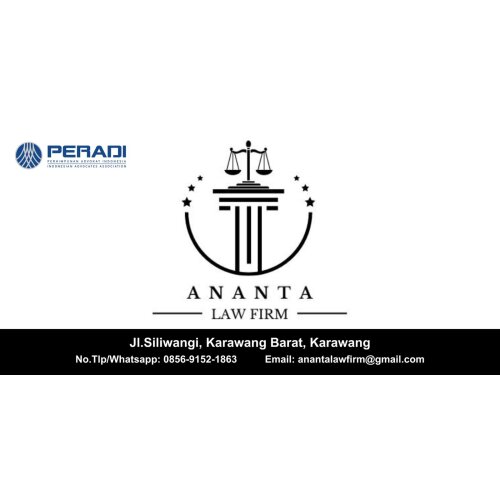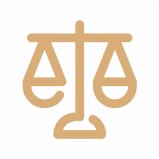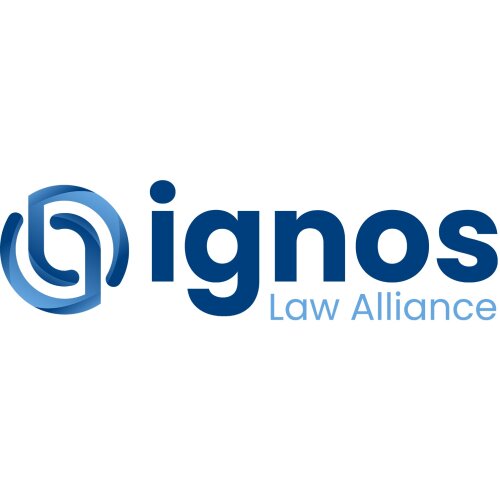Best E-commerce & Internet Law Lawyers in Indonesia
Share your needs with us, get contacted by law firms.
Free. Takes 2 min.
Or refine your search by selecting a city:
List of the best lawyers in Indonesia
About E-commerce & Internet Law in Indonesia
E-commerce and Internet Law in Indonesia is governed by a combination of national regulations designed to address the increasing importance of digital transactions and activities. The primary legislative framework includes the Electronic Information and Transactions Law (EIT Law), Government Regulation No. 80 of 2019 concerning E-commerce, and sector-specific regulations that tackle data protection, consumer protection, intellectual property, and cybersecurity, among others. These laws aim to provide a safe and transparent digital environment, ensuring trust between parties engaging in online activities.
Why You May Need a Lawyer
In the fast-evolving realm of E-commerce and Internet Law, individuals and businesses often find themselves in situations requiring legal expertise, including:
- Contract Disputes: Disagreements over terms and conditions, service-level agreements, or breach of contract in digital transactions.
- Consumer Protection Issues: Ensuring compliance with consumer rights laws and addressing complaints from consumers regarding online transactions.
- Data Privacy Concerns: Navigating complex regulations on personal data protection and avoiding potential breaches or penalties.
- Intellectual Property Rights: Protecting digital content, trademarks, or software, and addressing infringement issues.
- Compliance and Licensing: Ensuring e-commerce operations comply with local regulations and obtaining necessary permits or licenses.
- Fraud and Cybersecurity: Addressing fraud, hacking, and other cybersecurity threats affecting online business operations.
Local Laws Overview
Understanding key aspects of local laws is crucial for operating within the E-commerce and Internet sphere in Indonesia. Notable regulations include:
- Law No. 11 of 2008 on Electronic Information and Transactions (EIT Law): Establishes legal parameters for electronic contracts, evidence, and transactions.
- Government Regulation No. 80 of 2019: Provides a framework for e-commerce operations, addressing rights and obligations of parties, advertising, and dispute resolutions.
- Personal Data Protection Bill: Although not yet enacted, this prospective law aims to strengthen data privacy measures and obligations.
- Consumer Protection Law No. 8 of 1999: Offers guidelines for consumer rights related to digital transactions.
- Trademark Law No. 20 of 2016: Governs the protection and registration of trademarks in the digital space.
Frequently Asked Questions
What is the EIT Law, and why is it important?
The EIT Law provides the basic legal framework for electronic transactions and digital communications, establishing legal recognition for electronic evidence and documents, thus facilitating the growth of e-commerce in Indonesia.
How can I protect my data in Indonesia while engaging in e-commerce?
It’s essential to comply with existing data protection regulations and best practices by implementing robust cybersecurity measures and privacy policies. Consult with a legal professional to ensure compliance and stay informed about any updates on the pending data protection law.
Are online contracts legally binding in Indonesia?
Yes, online contracts are legally recognized under the EIT Law, provided they fulfill the general requirements of a contract as stipulated in the Indonesian Civil Code and specific provisions in the EIT Law.
What should I do if my intellectual property is infringed upon online?
You should first gather evidence of the infringement and consult with a lawyer specialized in intellectual property to explore options such as cease-and-desist letters or legal action.
Do I need a special license to operate an e-commerce business in Indonesia?
While a general business license is necessary, certain e-commerce activities may require additional permits or compliance with specific regulatory requirements. Consultation with a legal expert can clarify your specific obligations.
What are my rights as an online consumer in Indonesia?
Consumers are protected under the Consumer Protection Law, which covers aspects such as right to information, safety, and compensation for damages resulting from faulty goods or services.
Can I resolve an online transaction dispute through Indonesian courts?
Yes, disputes can be taken to the Indonesian courts, although alternative dispute resolution methods such as arbitration or mediation are also encouraged for efficiency and cost-effectiveness.
How are digital advertisements regulated in Indonesia?
Digital advertisements must comply with Indonesian advertising standards and those stipulated under the Government Regulation No. 80 of 2019, which ensures truthfulness and prohibits unethical practices.
What steps should I take to secure my online business from cyber threats?
Implement a comprehensive cybersecurity strategy, regularly update systems, conduct vulnerability assessments, and train employees on security best practices.
Is user consent required for data collection in Indonesia?
Yes, obtaining user consent is necessary for data collection, in alignment with current regulations, ensuring transparency about data usage, and respecting user rights.
Additional Resources
If you seek further information, these resources may be helpful:
- Ministry of Communication and Information Technology (Kominfo) - Offers insights on regulations and policies for digital initiatives.
- Indonesian E-commerce Association (idEA) - Provides industry reports and guidance on e-commerce practices.
- Directorate General of Intellectual Property - Offers services related to the protection of intellectual property rights.
Next Steps
If you require legal assistance in E-commerce and Internet Law in Indonesia, consider the following steps:
- Identify and clearly outline your issue or concern.
- Research and choose a specialized legal firm or lawyer with experience in e-commerce and internet law.
- Arrange a consultation to discuss the specifics of your case, ensuring you provide all necessary documentation and information.
- Evaluate the proposed strategies and solutions, considering both legal and business implications.
Taking proactive steps and seeking expert legal assistance is crucial to navigate the complexities of E-commerce and Internet Law in Indonesia successfully.
Lawzana helps you find the best lawyers and law firms in Indonesia through a curated and pre-screened list of qualified legal professionals. Our platform offers rankings and detailed profiles of attorneys and law firms, allowing you to compare based on practice areas, including E-commerce & Internet Law, experience, and client feedback.
Each profile includes a description of the firm's areas of practice, client reviews, team members and partners, year of establishment, spoken languages, office locations, contact information, social media presence, and any published articles or resources. Most firms on our platform speak English and are experienced in both local and international legal matters.
Get a quote from top-rated law firms in Indonesia — quickly, securely, and without unnecessary hassle.
Disclaimer:
The information provided on this page is for general informational purposes only and does not constitute legal advice. While we strive to ensure the accuracy and relevance of the content, legal information may change over time, and interpretations of the law can vary. You should always consult with a qualified legal professional for advice specific to your situation.
We disclaim all liability for actions taken or not taken based on the content of this page. If you believe any information is incorrect or outdated, please contact us, and we will review and update it where appropriate.
Browse e-commerce & internet law law firms by city in Indonesia
Refine your search by selecting a city.
















